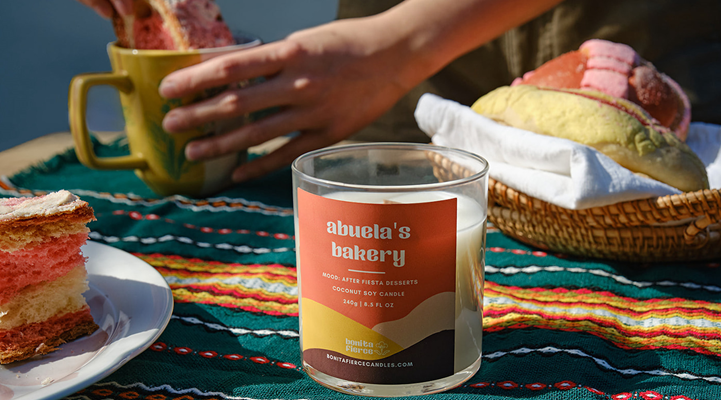National Hispanic Heritage Month is celebrated each year from September 15 to October 15, when the Hispanic and Latinx community, including business owners and entrepreneurs, is in the spotlight. Like other heritage months, such as Asian American and Pacific Islander Heritage Month or Black History Month, this month provides brand founders like Magdaline Hurtado, founder of hair accessories brand Hello Updo, and Melissa Gallardo, founder of candle brand Bonita Fierce, with increased sales and
nd awareness.
However, it can also generate mixed emotions as it raises the question of why Hispanic and Latinx-owned brands, which make up about 7 per cent of businesses in the US, aren’t receiving this type of support year-round.
Brand founders tap into the power of National Hispanic Heritage Month
“For many brands, Hispanic Heritage Month is a mere moment to capitalize on Hispanic cultures,” Hello Updo’s Hurtado explained to Inside Retail.
“But for Hello Updo and other Hispanic-owned brands alike, it’s a crucial opportunity to amplify our heritage, a driving force behind the very creation of most of our brands, given that it’s the only time of the year when all eyes are on us.”
Melissa Gallardo told Inside Retail that Bonita Fierce leans into the opportunity of this month by tapping into additional media coverage, planning corporate gifting and retail strategies, and offering free shipping all month long.
“Plus, as part of our mission to amplify diverse, nuanced Latino voices and stories, we highlight other online, brick-and-mortar small businesses and historical figures in our own marketing,” Gallardo said.
Similarly, Hurtado said Hello Updo has launched a social media campaign celebrating “pelo bueno” (which translates to “good hair”), which is a tribute to the beauty of hair in all its forms.
The campaign is a response to the term “pelo melo”, which translates as “bad hair” and is often used to refer to non-straight hair textures.
Hurtado reported that the campaign has reached over 40,000 views across Hello Updo’s social media channels, boosting the brand’s profits this month.
“Unlike many brands, we did not offer a sale on our products. We decided to donate 15 per cent of our profits from September 15 to October 15 to a girls’ orphanage in the Dominican Republic that provides safe housing, education, health services and emotional support,” Hurtado said.
National Hispanic Heritage Month is an opportunity for Hispanic and Latinx founders to reconnect with members of their community and introduce their brands to consumers who may be unfamiliar with their products and cultural traditions.
“At its core Bonita Fierce is a Latin-heritage-focused home fragrance brand and you don’t have to be Latino to enjoy our candles, just like you don’t have to be Mexican to enjoy tacos on Taco Tuesday,” Gallardo pointed out.
“We believe in celebrating our heritage and culture all year but when there’s a dedicated time in the calendar, we can create longer-lasting conversations about our community to a greater audience,” the fragrance brand founder explained.
Amplifying the call for year-round support
Gallardo and Hurtado both spoke about the need for more sustainable support for Hispanic and Latinx-owned brands all year-round.
“Retailers can invest, purchase and highlight our contributions year-round by curating Hispanic/Latin-owned and centered initiatives through their websites, product offerings and social media strategies,” Gallardo said.
“They need to think deeper about how multicultural audiences will shape purchasing habits in the next five-plus years.”
By 2030, 25 per cent of the US population is predicted to be Hispanic and Latinx, so retailers that ignore their cultural identity risk losing out on business opportunities.
“Younger audiences want to see brands that care about their identities and heritage and culture do inform their purchasing decisions,” the candle brand founder emphasized.
Hurtado also noted a study conducted by NielsenIQ, a global marketing research firm that reports on consumer behavior, which found that Latina consumers spent 19 per cent more on beauty products than the average US consumer in 2022.
The report revealed that Latina consumers make an average of two more trips to buy beauty products than non-Hispanic consumers and that they are more likely to shop at brick-and-mortar stores like Target, Sephora, and Ulta.
Hurtado explained that “this is an opportunity, not just for Latina-owned brands but for all retailers”.
“Latina consumers are already shopping for our products on our direct-to-consumer channels so why not partner with us to bring them through the doors? I look forward to being part of this next generation of brands that become household names with the support of innovative and inclusive retailer partners,” Hurtado concluded.

